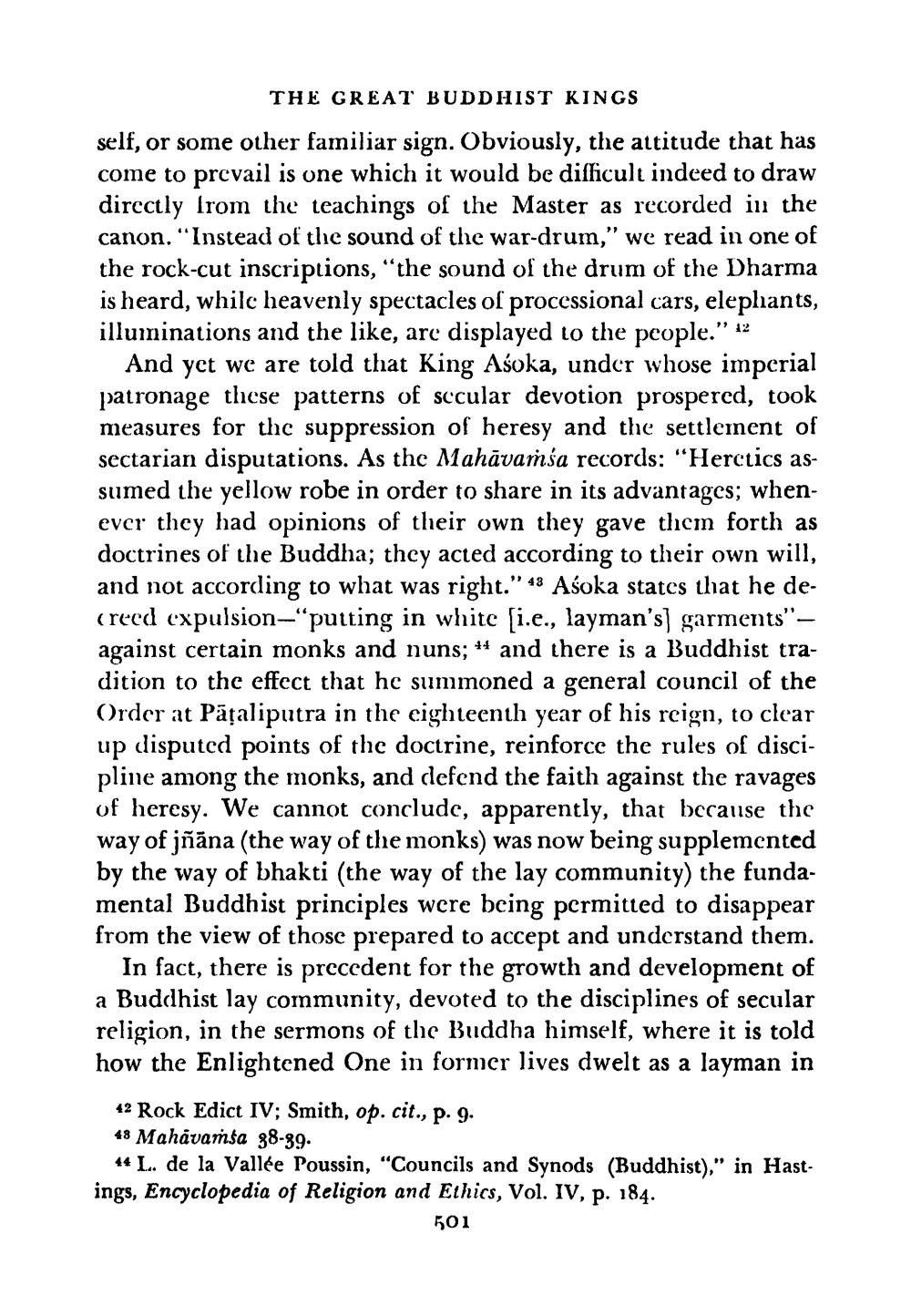________________
THE GREAT BUDDHIST KINGS
self, or some other familiar sign. Obviously, the attitude that has come to prevail is one which it would be difficult indeed to draw directly from the teachings of the Master as recorded in the canon. "Instead of the sound of the war-drum," we read in one of the rock-cut inscriptions, "the sound of the drum of the Dharma is heard, whilc heavenly spectacles of processional cars, elephants, illuminations and the like, are displayed to the people.” 12
And yet we are told that King Aśoka, under whose imperial patronage these patterns of sccular devotion prospered, took measures for the suppression of heresy and the settlement of sectarian disputations. As the Mahāvamśa records: "Herctics assumed the yellow robe in order to share in its advantages; whenever they had opinions of their own they gave them forth as doctrines of the Buddha; they acted according to their own will, and not according to what was right." 43 Asoka states that he de(recd cxpulsion-"putting in white fi.e., layman's) garments" - against certain monks and nuns; 44 and there is a Buddhist tradition to the effect that he summoned a general council of the Order at Pāțaliputra in the cighteenth year of his reign, to clear up disputed points of the doctrine, reinforce the rules of discipline among the monks, and defend the faith against the ravages of heresy. We cannot conclude, apparently, that because the way of jñāna (the way of the monks) was now being supplemented by the way of bhakti (the way of the lay community) the fundamental Buddhist principles were being permitted to disappear from the view of those prepared to accept and understand them.
In fact, there is precedent for the growth and development of a Buddhist lay community, devoted to the disciplines of secular religion, in the sermons of the Buddha himself, where it is told how the Enlightened One in former lives dwelt as a layman in
42 Rock Edict IV; Smith, op. cit., p. 9. 48 Mahavamsa 38-89.
44 L. de la Vallée Poussin, "Councils and Synods (Buddhist)," in Hastings, Encyclopedia of Religion and Ethics, Vol. IV, p. 184.
501




